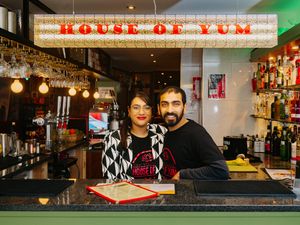Marston's sales rise but more pubs to be sold to cut debt
Pubs group Marston’s enjoyed an 11.3 per cent rise in sales in the year to the end of September.
During the year non-core pub sales generated £55m including from the sale of the now demolished The Crooked House at Himley, near Dudley.
The Wolverhampton-based group has completed a further strategic assessment of assets and in 2023-2024 expect to dispose of around £50 million of additional non-core pubs.
It will be selling them on an individual basis rather than as a package and thery will be across the country.
The business has also reduced staff numbers by 50 at its head office at St John's House, St John's Square, following a summer review of its operation.
Chief executive Andrew Andrea said the redundancies had all been completed and were part of a strategy to streamline the business and run as efficiently as possible.
Both drink sales and food sales have been strong for the business which operates an estate of 1,415 pubs nationally and employs around 11,000.
Marston’s, which has a 40 per cent holding in Wolverhampton-headquartered Carlsberg Marston’s Brewing Company, said that like-for-like sales in the 10 weeks from July 23 to September 30 were 7.7 per cent up on a year earlier, reflecting the wetter weather over the July and August summer months.
Drink sales in this period were behind food sales, principally due to the weather.
The last five weeks like-for-like sales were up 12. per cent, providing strong momentum into the new financial year, with both food and drink sales in strong growth.
Marston's has successfully trialled its franchise-style model in 19 of our food-led managed pubs to complement the 714 wet-led pubs operated under this model. It is very pleased with the result of the pilot to date, with sales growth significantly exceeding that of the broader food business.
It is on track for the target of 50 food-led franchised pubs in 2023-2024.
Following a review of the business structure over the summer, Marston's reduced head office headcount costs by approximately £5 million, the majority of which will benefit 2023-2024 and subsequent years. This cost reduction is expected to translate into higher pub operating profitability than was previously anticipated.
Net borrowings at the end of September were £1.18 billion – £31m below last year and £19 million lower than the first half of the year. Marston's is targeting debt reduction of £60m to £70m in 2023-2024.
Borrowing is largely long-dated and asset-backed.
Mr Andrea said the objective was to get the debt pile below £1bn as quickly as possible to encourage fresh investment in the group.
He explained: “Two years ago, we set out our vision and strategy with a clear objective to create a simplified, high quality predominately suburban pub business, with minimal exposure to city centres where demand is more volatile. Operationally, we remain focussed on the core pillars of driving guest satisfaction in a great environment served by engaged and focussed teams, which remains relevant despite the macro challenges facing the consumer.
“The benefits of this strategy are now coming through. We are pleased that the strong trading momentum which characterised the first half of this year has continued into the second half, culminating in a 12 per cent like-for-like performance most recently. The simplification of the business, together with the extension of the franchise model into our food-led pubs, has enabled us to introduce additional efficiencies into the business, which will improve margins in 2024 and beyond, through improved sales performance and continued cost savings.
“We continue to make good progress across our key medium term strategic goal of reducing the group’s borrowings to below £1bn, including the accelerated disposal of non-core pubs.
“An improving outlook in which cost headwinds are abating, together with the actions we have taken this year to drive further efficiencies, leaves us confident that Marston’s remains well-placed to continue to outperform in the current macroeconomic environment, grow revenue and profitability, as well as deliver improved margin in the year ahead.”




